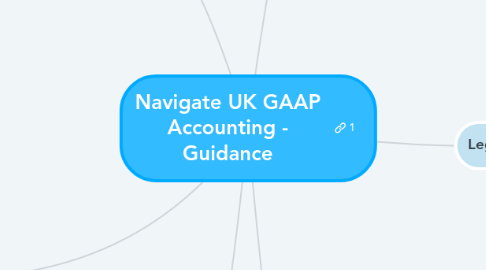
1. Filing financial statements
1.1. Filing financial statements
1.1.1. Overview of filing financial statements
1.2. Filing deadlines
1.3. Electronic tagging of financial statements (iXBRL)
1.4. Filing financial statements with the Registrar of Companies
1.4.1. The Registrar’s Rules
1.4.2. Filing financial statements in paper form
1.4.3. Filing financial statements in electronic form
1.4.4. Common reasons for financial statements rejections at Companies House
1.5. Filing amended financial statements
1.6. Submitting financial statements to HMRC
2. Dormant companies
2.1. Conditions for exemption from audit
2.2. Definition of a dormant company
2.3. Dormant subsidiary company exemption from preparing or filing financial statements
3. Narrative reporting
3.1. Objectives of narrative reporting
3.2. Directors’ report
3.2.1. Requirements and scope
3.2.2. Contents of the directors’ report
3.2.3. Statement of disclosure of information to auditors
3.2.4. Statement of directors’ responsibilities
3.3. Strategic report
3.3.1. Requirements and scope
3.3.2. Contents of the strategic report
3.3.3. Non-financial reporting statement
3.3.4. FRC strategic report guidance
3.3.5. Supplementary material
3.4. Approval and signing of narrative reports
3.5. Wates corporate governance for large private companies
3.6. Environmental, social and governance (ESG) reporting
3.6.1. Environmental, social and governance (ESG) reporting
3.6.2. Environmental reporting
3.6.3. Social reporting
3.6.4. Governance reporting
3.6.5. Further resources
3.7. Covid-19 and narrative reporting
4. UK Financial Reporting Frameworks
4.1. Accounting standards in law
4.2. Financial reporting standards framework
4.2.1. Financial reporting standards framework
4.2.2. Generally accepted accounting practice (GAAP)
4.2.3. Republic of Ireland
4.3. International Financial Reporting Standards
4.4. Scope of UK financial reporting standards and IFRS
4.4.1. Use of IFRS and UK standards by UK companies
4.5. Statement of compliance
5. Legal requirements
5.1. Purpose and scope of UK company law
5.1.1. Basic approach
5.1.2. Qualifying for the small and micro regimes
5.1.3. Accounts and audit
5.1.4. Applicable accounting framework
5.2. Annual financial statements
5.2.1. Individual financial statements
5.3. ‘True and fair’ concept
5.3.1. True and fair view
5.3.2. True and fair override
5.3.3. Application to IAS accounts
5.4. Adequate accounting records
5.4.1. Requirements
5.4.2. Recording distributable profits
5.4.3. Capital maintenance
5.5. Format of financial statements
5.6. Statutory accounting principles
5.6.1. Basic principles
5.6.2. Valuation bases
5.6.3. Realised profits
5.7. Consolidated financial statements
5.7.1. Consolidated financial statement requirements and exemptions
5.7.2. Consolidated financial statement exemptions
5.7.3. Individual and separate accounts
5.8. Approval and signature of financial statements
5.9. Publication of statutory and non-statutory financial statements
5.9.1. Publication of statutory financial statements
5.9.2. Publication of non-statutory financial statements
6. Audit requirements and exemptions
6.1. Audit requirements
6.1.1. Audit requirements
6.1.2. Determining whether an audit is required
6.2. Audit exemptions
6.2.1. Audit exemption overview
6.2.2. Small companies audit exemption
6.2.3. Subsidiary companies audit exemption
6.2.4. Dormant companies audit exemption
6.2.5. Right to require an audit
6.2.6. Audit exemption – directors’ statement and filing
